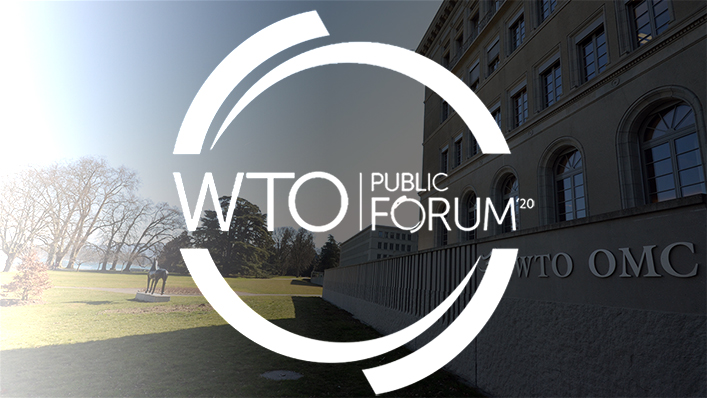Digital trade governance for development: Implementation challenges and technical assistance needs
30 Sep 2021 07:30h
Ms Vivien Foster (Chief Economist, Infrastructure Vice-Presidency, World Bank Group), reviewed the World Bank World Development Report: ‘Data for Better Lives’. Foster pointed out that use of data is a double-edged sword in development. She indicated where the use of data has reduced fatal consequences of cyclones; in the first instance, when a cyclone struck India almost a decade ago, over 10,000 lives were lost, but through analysis and data used to inform public policy, the death toll of a cyclone 10 years later was 38. Foster also highlighted a case from Nairobi where data was used to reduce fatalities as a result of road traffic accidents. Data can also be abused and used to harm the public and private sectors through government misuse, surveillance, or the darknet, leading to inequality.
Thus, a new social contract for data is required that is built on value, equity, and trust. Foster also discussed cases where data services are not used, due to data illiteracy or affordability and where a lack of supporting infrastructure prevents their use. Costs associated with data transfer and digital services can also be higher without local infrastructure like internet exchange points and co-location data centres.
As economies move increasingly to digital operations, economic policies need to reflect the importance of data. It becomes necessary to work towards an integrated national data system; and, for example, Estonia is the closest to having this fully implemented. Foster also touched on growing concerns regarding the large percentage of digital data that is controlled by a handful of tecnology firms in the US and concerns regarding the lack of taxation of digital businesses and lost economic value for governments.
Mr Martin Molinuevo (Senior Counsel, Trade and Regional Integration, World Bank Group) discussed how data governance supports digital trade. He highlighted that we are living in a data revolution, and that we have produced more data in the last decade than in the previous 300 years. It is vital to recognise that digital technologies are transforming global trade and that data is not just an input, but an embodiment of services that transcend borders.
He continued to explain that data is fast becoming the container for trading goods and that three regulatory models for the container are available: Open, Conditional, and Limited. The conditional model seems to foster bilateral trade most effectively and has been the most optimal approach. Molinuevo showed that digital trade rules are central to trade agreements, but a greater depth in the establishment of interoperability rules is desireable. For example, rules regarding technical standards for data to flow and be functional across borders would benefit trade.
Ms Shamika Sirimane (Director, Division on Technology and Logistics, UNCTAD), in reviewing the World Bank Development report and the digital report from UNCTAD, focused on how to make the fast moving digital economy work for all. Sirimane revealed the emergence of a significant data divide built upon an existing connectivity divide, which the COVID-19 epidemic has increased. While less than half of the world uses the internet, two main countries, the US and China, dominate the digital economy. These main players have diverging approaches to data governance. Regulatory frameworks have either been too narrow or too limited geographically in face of the fact that cross border data flow is a broad issue. Sirimane suggests that a push to enable global data sharing would enable more trust and ways to deal with the consequences of national regulations spilling over into other nations.
Ms Shamira Ahmed (Senior Economist, Research ICT Africa) discussed the supply of technical assistance for digital services in Africa and the supply and demand constraints of electricity and access to devices. For benefits to be reaped from the digital economy, understanding and support from the existing regulatory framework must be in place, and data infrastructure and an improvement in the quality of machine readable data must be provided.
Many overlapping challenges must be addressed and policies must be put into place alongside infrastructure. Ahmed and Foster called for regional participation and increased representation among developing countries within the e-commerce Joint Statement Initiative (JSI). Molinuevo emphasised the need for understanding of the demands and benefits of these negotiations for these countries and that space should be provided for developing countries to bring their concerns.
Sirimane stated that negotiation at the WTO is about cross-border data flows and that considerable capacity building is required; a holistic approach must be taken for understanding what is at stake for countries. Ahmed made a call for any ecommerce discussions at the WTO to move beyond the JSI and be implemented under the DOHA development agenda to raise awareness of the implications.
Related event

